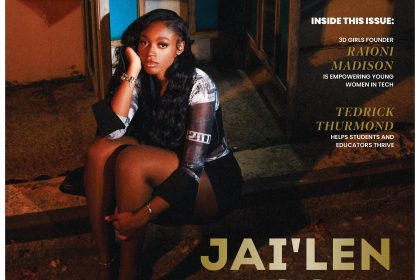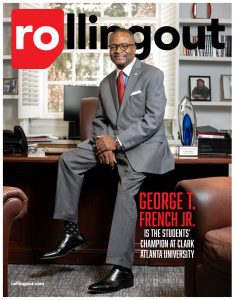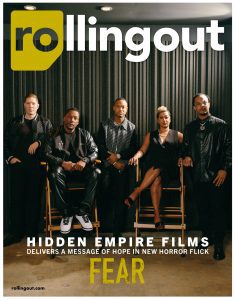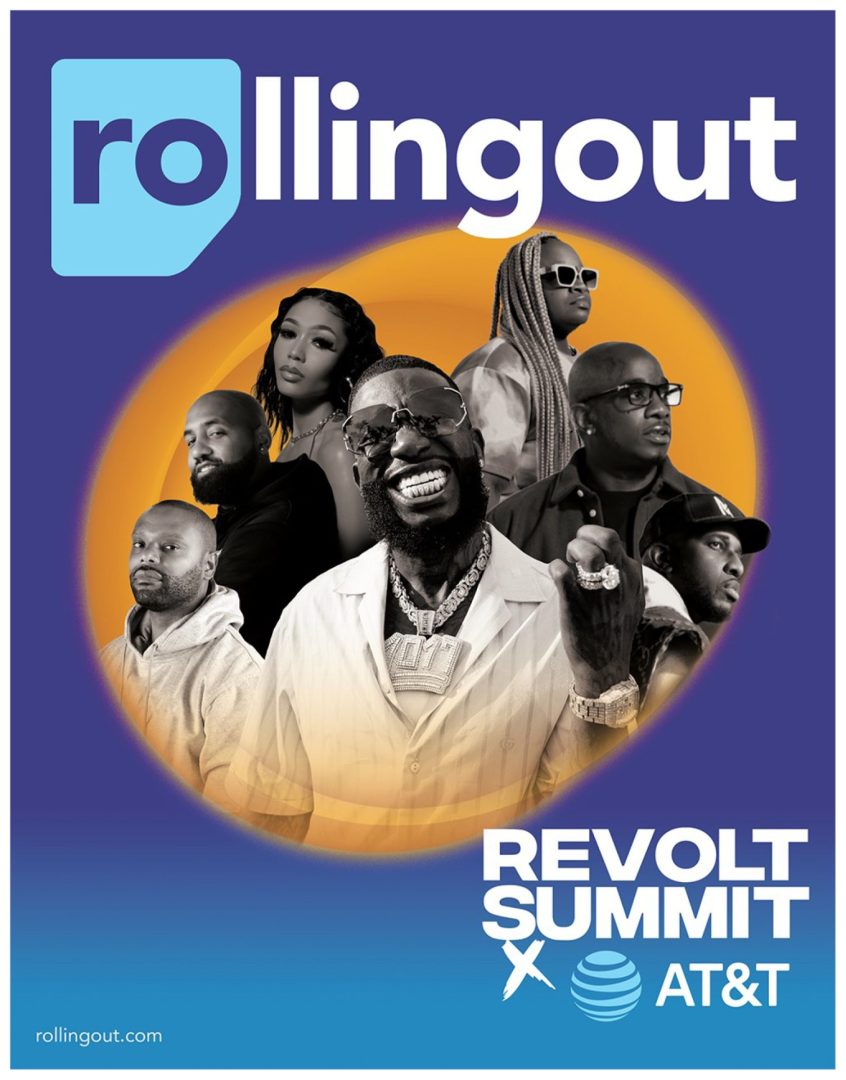Rap icon T.I. leaned back in his chair onstage at the annual ComplexCon in Long Beach, California, and reminisced about his directorial debut in the 2023 comedy film Da ‘Partments with his adult son, King Harris at his flank.
His face was flush with the contentment of someone who has persevered through innumerable obstacles and legal entanglements to achieve the American Dream — and created a musical dynasty in the process. The concrete jungle that birthed an Earth-shifting movement called trap music was in his rearview mirror, yet ever-present in his soul.
Da ‘Partments is a comical view of the essence of the trap that defines Tip and the Grand Hustle crew but failed to ensnare them in its potentially deadly grasp. Or as Kawan Kawmi “KP” Prather says, “The trap is a place. But it was turned into almost like an adjective to describe the aspiration to get out of it, but without the idea of leaving the identity.”
As T.I. and his crew take a nostalgic walk back to Aug. 19, 2003, the day the album Trap Muzik was released and the movement mushroomed into a global phenomenon, crisscrossing the oceans, and reaching the seven continents on the globe, it’s fascinating that one of the most consequential subgenres in hip-hop history — that has also permeated pop culture — began in the most inauspicious and humblest of fashions.
The album Trap Muzik originated in the Bankhead section of Atlanta, seemingly oceans away from Buckhead, the famed upscale section on the other side of the bustling metropolis. There were not many Martin Luther King “dreams” on the horizon in Bankhead, just a chaotic cluster of check-cashing joints, fast-food franchises, liquor stores and funeral homes that littered the neighborhoods and resulted in unending drama from folks trying to survive in, or come up out of their challenging circumstances.
But the ambience was fertile enough to grow a monumental movement that blossomed and trumpeted loud enough to be heard throughout Bankhead, Buckhead, Beverly Hills, Bangladesh and Buenos Aires. Fifth Avenue came calling. Hollywood came calling. Trap music was an undeniable and unimpeachable paradigm shift in music.

Trap music began next to the pots and pans in DJ Toomp’s parents’ home. It started in the back of a beauty salon. It originated before the explosion of the information superhighway and its tentacles of digital dalliances of Google, emails and social media.
It began with a charismatic wordsmith who sports a distinctive baritone, an infectious cadence, an instantly recognizable Southern twang as thick as pancake batter, and a gift for storytelling. It started before Clifford Joseph Harris Jr. was even known as T.I.
As Tip flips through his mental scrapbook of memories, he is pensive and philosophical about the place that molded and cultivated him and ultimately launched him into the entertainment stratosphere.
“It’s the feeling of what the devil means to be bad, God uses for good. And when I say that it’s like all of these experiences, all of these life lessons, all of these triumphs and tragedies that are shared, to create trap music, you know, they come from a very dark place,” Tip says. “People had to endure some extreme circumstances, to be able to take that and that testimony, and use it as a philosophical presentation, through the music, to share with the world for a few reasons.”
Yes, trap music probes the grime and grittiness of urban America, particularly in Atlanta. But it is not lost on fans that trap music is also aspirational. It is a movement spawned from triumphs and tragedies but also about hope, dreams and goals.
“[Trap music] is, for one, to let people who are going through an ordeal know that they ain’t in it alone. Two, to let people who are still going through it know that there is a possibility and there is hope for a way out,” Tip said. “And, three to let the world know that these circumstances and conditions are having long-lasting effects on the people who live in communities.”
DJ Toomp, one of the production connoisseurs who helped create that signature trap sound and vibe, said it is surreal to understand just how big trap music has become.
“Man, it’s incredible. I mean, a lot of times, people wake up and do something new, or do something innovative. One thing is you don’t know if this is going to be something that’s in style for that season, that quarter, that week, or that year,” Toomp explains. “Yeah, when you count all the way up to 20 [years], man, you know that ain’t no punk number. As far as [a] genre and a sound and a movement, like, that’s major.”
Prather says trap music started before the advent of modern technology, making the achievement all the more remarkable.
“And the thing that it also did was it traveled through time and technologies,” Prather adds. “Like it’s lasted, you know, the different versions of … what it is we do. So yeah, that it is still applicable is an amazing thing.”
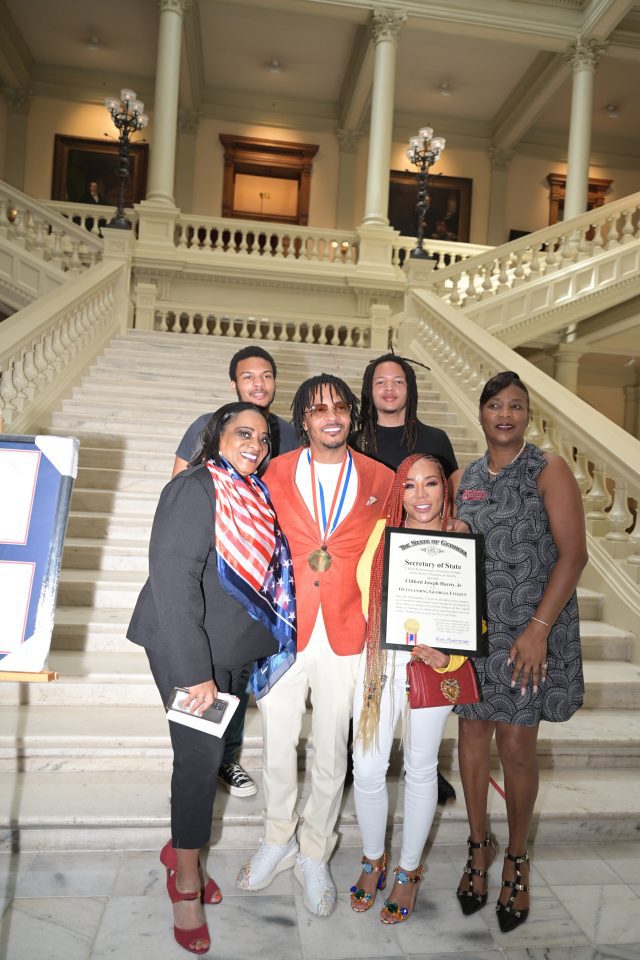
As the angst, anger and aspirations pulsated through Trap Muzik’s seminal singles like “Doing My Job,” “Rubber Band Man,” “24s” and “Easy,” that irascible sound still resonates with audiences today.
“A lot of people were influenced by OutKast. And even before that, you gotta go to Kilo and Raheem. So we had been represented well, but we had never been represented like Tip,” says Grand Hustle’s co-CEO. “Like, it was just different. His lyrical ability and storytelling, and then that raw, street, gutter sound. It was just new. We hadn’t heard it like how he did it exactly — combined with the sound, the DJ Toomp sound.”
The momentum generated from Trap Muzik blasted open the floodgates of change in music. Jeezy and Gucci Mane — whom Tip calls “co-founders” — along with Migos, Lil Baby, Yo Gotti and 2 Chainz, who are seen as caretakers to the new style that took over hip-hop.
Producers like DJ Toomp and others also deserve to get their flowers for creating the flow by which trap music flourished.
“DJ Toomp kind of set it off and then a lot of people kind of followed it up with that sound and were inspired by that sound and came into the game and made their way as well … on the production side,” Prather adds.
Since Trap Muzik, T.I. has gone on to flourish as a bona fide superstar and transcendent figure in hip-hop. He became a respected ambassador of upward mobility and generational wealth in the Black community. He created a conglomerate through the founding of Grand Hustle in 2003 and since opened the Trap Music Museum and Trap City Café, which have attracted tourists from across the nation and around the globe.
“Last, I’ve got to recognize, and also communicate, that the glory should go to God. You know, I’m a vessel, I’m an instrument, you know. I’m saying, I have been put in certain positions and I’ve made it through certain ordeals,” Tip expounds.
“By the grace of God, you know [what] I mean, and through those things, I always prayed. I prayed for a prayer for wisdom. I pray for understanding. And I pray to be delivered into a better way of life for myself and my family. I pray too, to be able to live doing what I do to make a living, doing what I love to do. And so, all prayers, and all of that, all of that faith … all of that, it led to, the moment where I could stand in a position and share, share with the world how good God had been to me, and how good that God could be to others,” he says.
Photos by Gifted Talents

